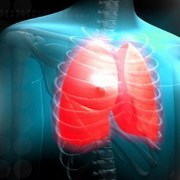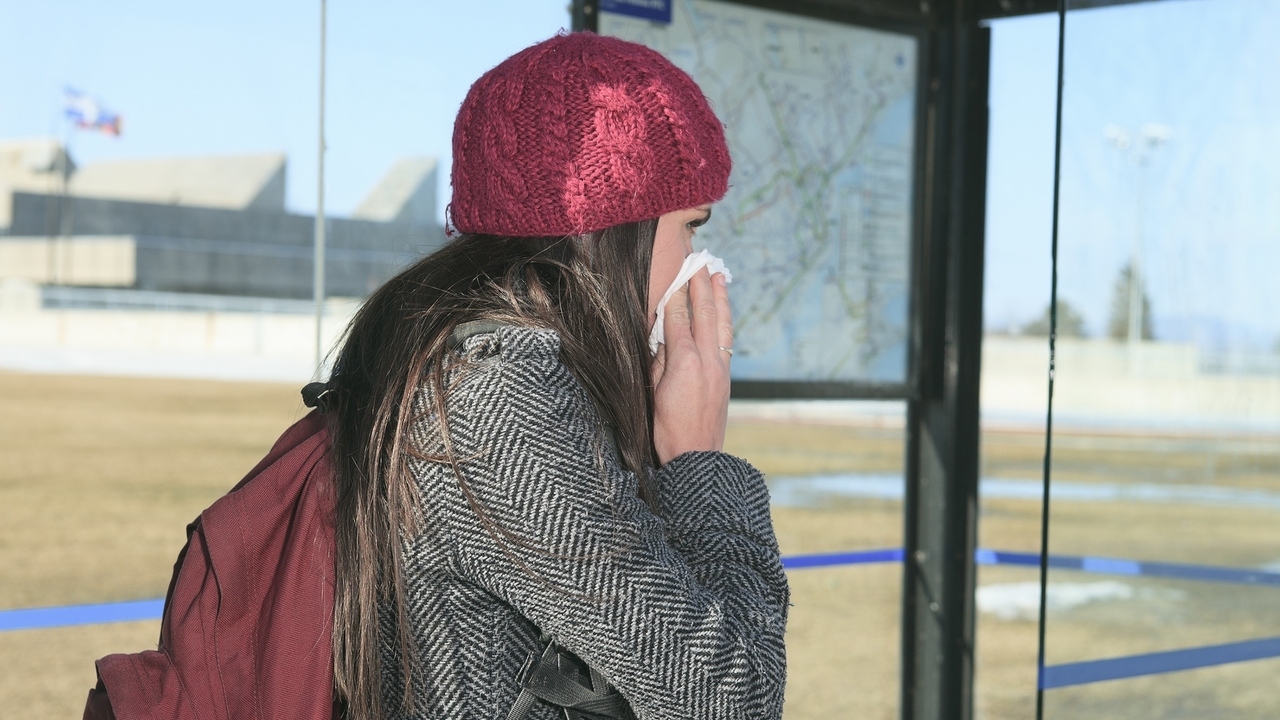 Photo: Getty Images
Photo: Getty Images
The lungs are central to the human respiratory system and the only internal organs that are constantly exposed to the external environment. Tobacco smoke, pollution, infections and genetics are responsible for most lung conditions and diseases.
Conditions and Diseases of the Airways
The trachea is divided at its base into two airways called the bronchi, which lead to each lung. The bronchi split like the branches of a tree into tens of thousands of smaller airways called bronchioles, which connect to tiny air sacs called alveoli.
Asthma is a chronic respiratory disease caused by inflamed and constricted airways. Allergens, such as dust, pollen or tobacco smoke, trigger an attack. A combination of environmental and genetic factors may predispose a person to developing asthma.
Bronchitis is inflammation of the main air passages, which become irritated, swollen and produce mucus. Acute bronchitis generally follows a viral respiratory infection while chronic bronchitis may result from smoking, repeated episodes of acute bronchitis or exposure to occupational or environmental irritants
Chronic obstructive pulmonary disease or COPD refers to a group of lung diseases which cause restriction in the airways. Chronic bronchitis, emphysema and chronic asthmatic bronchitis are the most common COPD conditions. Smoking is the major cause of COPD.
Cystic fibrosis is a genetic, chronic and life-threatening condition causing the abnormal production and accumulation of mucus in the airways of the lungs, in the pancreas, the sweat glands and the male reproductive system.
Conditions and Diseases of the Alveoli
The alveoli are the tiny air sacs where gas exchange, the process of getting oxygen to the red blood cells and eliminating carbon dioxide from the blood happens.
Pneumonia is inflammation of the alveoli caused by bacteria, viruses, fungi or parasites. It can range in seriousness from mild to life-threatening and frequently is a complication of another condition such as the flu.
Emphysema slowly destroys the alveoli and the elastic fibers that hold open the small airways leading to the alveoli. It reduces the surface area of the lungs and the amount of oxygen that reaches the bloodstream. Tobacco smoking is the leading cause of this condition.
Pulmonary edema is the abnormal accumulation of fluid in the alveoli. It is usually caused by heart failure but can occur with lung damage due to injury, exposure to poisonous gases or exercising at very high altitudes.
Pulmonary tuberculosis is a contagious infection caused by the bacterium called Mycobacterium tuberculosis. It affects the lungs but may spread to other organs in the body. The infection is spread by inhaling air droplets from the cough or sneeze of an infected person.
Acute respiratory distress syndrome or ARDS is a life-threatening condition that leads to the accumulation of fluid in the alveoli. This condition prevents enough oxygen from getting into the blood. Aspiration, septic shock, pneumonia, inhaling chemicals and trauma can cause ARDS.
Lung cancer originates in the lungs and is classified as either non-small cell, which is the most common type and small cell, which makes up about 20 percent of all cases of lung cancer. A combination of both types is called mixed small cell/large cell cancer. Cigarette smoking is the leading cause of lung cancer, which kills more people annually than breast, colon and prostate cancers combined.
Pneumoconiosis is an occupational lung disease caused by inhaling coal dust. Commonly referred to as Black Lung Disease, the interstitial lung disease causes lung damage, inflammation of the alveoli walls and stiffening of the lungs from scarring of the tissue between the alveoli.
Interstitial Lung Disease
Interstitial lung disease includes a number of lung disorders, most of which cause progressive scarring of lung tissue. The scarring eventually impairs breathing and reduces the amount of oxygen getting into the blood. Long-term exposure to hazardous materials, such as asbestos, radiation therapy to the chest, certain medications, such as chemotherapy and drugs to treat cardiac arrhythmias, and certain types of autoimmune diseases such as rheumatoid arthritis cause interstitial lung disease. In some cases, the cause is unknown.
Sources:
PDR Health/ Physicians’ Desk Reference: Asthma, Sept. 20, 2011
http://www.pdrhealth.com/diseases/asthma
PubMed Health: Bronchitis, Sept. 20, 2011
http://www.ncbi.nlm.nih.gov/pubmedhealth/PMH0002078
PDR Health/ Physician’s Desk Reference: Chronic Bronchitis, Sept. 2011
http://www.pdrhealth.com/diseases/chronic-bronchitis
PubMed Health: Cystic Fibrosis, Sept. 20, 2011
http://www.ncbi.nlm.nih.gov/pubmedhealth/PMH0001167
Mayo Clinic: Emphysema, Sept. 20, 2011
http://www.mayoclinic.com/health/emphysema/DS00296
PubMed Health: Pulmonary Edema, Sept. 2011
http://www.ncbi.nlm.nih.gov/pubmedhealth/PMH0001195
PubMed Health: Pulmonary Tuberculosis, Sept. 21, 2011
http://www.ncbi.nlm.nih.gov/pubmedhealth/PMH0001141
PubMed Health: Acute Respiratory Distress Syndrome, Sept. 21, 2011
http://www.ncbi.nlm.nih.gov/pubmedhealth/PMH0001164
PubMed: Lung Cancer, Sept. 21, 2011
http://www.ncbi.nlm.nih.gov/pubmedhealth/PMH0004529
American Lung Association: Pneumoconiosis, Sept. 21, 2011
http://www.lungusa.org/lung-disease/pneumoconiosis
Mayo Clinic: Interstitial Lung Disease, Sept. 21, 2011
http://www.mayoclinic.com/health/interstitial-lung-disease/DS00592/DSECTION=causes
Reviewed September 21, 2011
by Michele Blacksberg R.N.
Edited by Malu Banuelos






Add a CommentComments
There are no comments yet. Be the first one and get the conversation started!